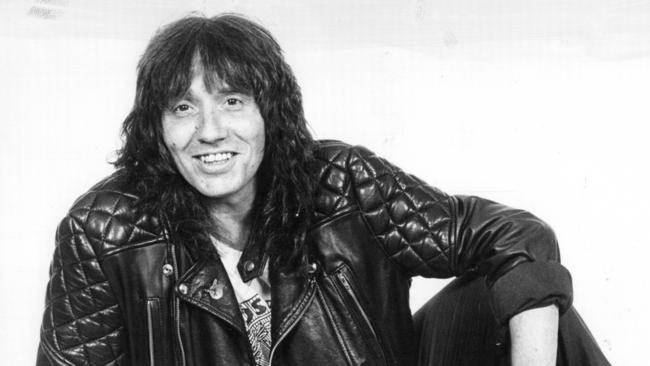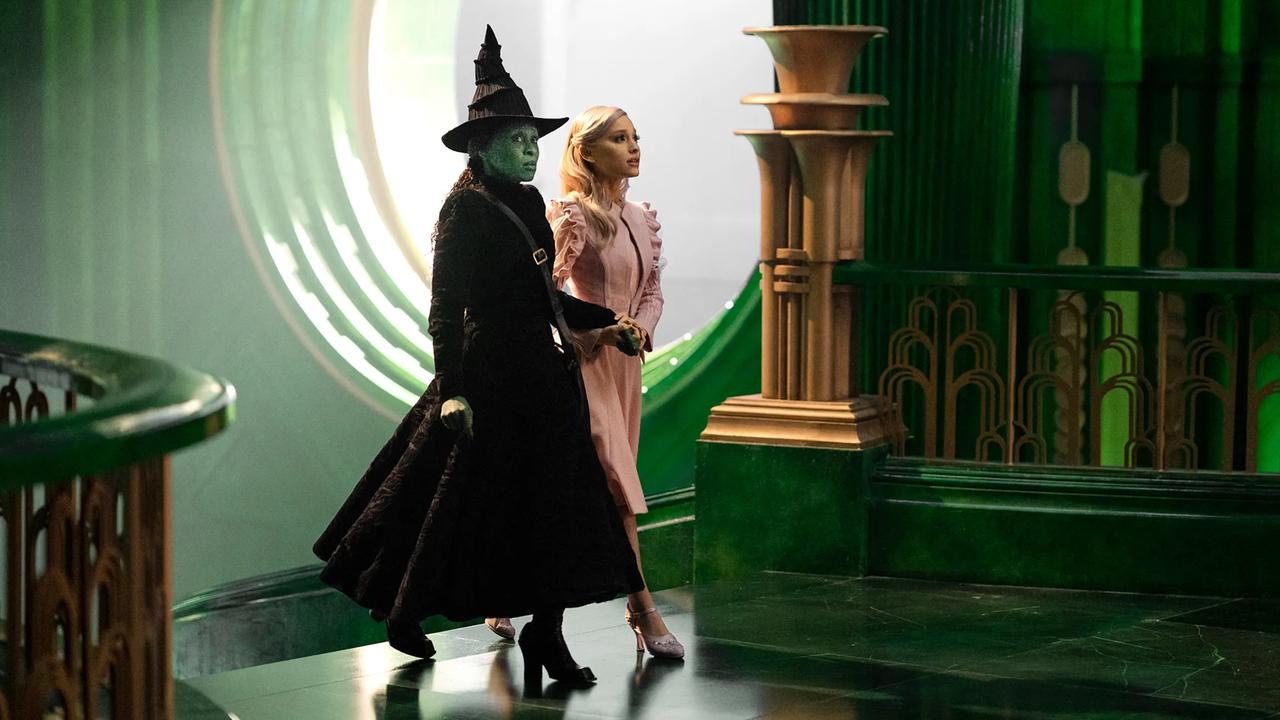Rock legend Stevie Wright dead at 68
The Easybeats singer Stevie Wright was a legend of the Australian rock scene.

Along with their parents escaping the postwar austerity of Britain, the migrant ships came loaded with the frontline of Australian music in the 1960s.
The £10 pop stars included Billy Thorpe, Jim Keays, Mike Brady, John Farnham, Glenn Shorrock — and every member of the Easybeats.
The Easybeats’ well-worn story has the nucleus of the band forming at Sydney’s Villawood migrant hostel, quickly entering the premier league of local acts with their frenzied, mod-influenced live shows, issuing a series of hit singles culminating in Friday On My Mind which dents British and US charts, after which band members George Young and Harry Vanda write and/or produce a series of hits for others, not least of which AC/DC.
But that is half the story. The second half. And it airbrushes from Australian popular music the extraordinary achievements and influence of Stevie Wright, who died on Sunday, a week after turning 68.
When the Easybeats formed about the time the Beatles toured Australia, most local acts set about navigating their way to fame by recording well-chosen covers of others’ songs, including Billy Thorpe and the Aztecs, the country’s most popular band whose cover of Poison Ivy famously kept the Beatles at bay as they toured here.
The Easybeats eschewed that idea from the start. Their first single, For My Woman, had Wright’s intense vocals commanding dense jungle rhythms, the sound of which prefigured Chip Taylor’s Wild Thing and preceded, by more than a year, the famous hit of that song by England’s the Troggs.
But Australian radio was resistant to local songs by local acts. And, in any case, For My Woman’s awkwardly stolid lyrics failed it. On the B side was the first Harry Vanda-George Young composition. Greatness would beckon for them both, but the Easybeats would need better songs if they were to make an impact on the charts. The first hit came soon enough. Young thought the next single needed to be upbeat. He had some musical phrases and, working with Wright, shoehorned the right words into them. Just eight weeks after For My Woman ran out of puff at No. 46, the follow up single, She’s So Fine, stormed the charts and became an Oz-mod classic.
The first line was a tongue-in-cheek adaptation of that most cliched of blues song lyrics: “I woke up bright and early this mornin’.”
But this was no blues song. Wright made that clear after the first eight guitar notes, grabbing the song by the throat with a raucous cry of angst — “Waaahh!” — that is positively primeval as he discovers his girl is missing.
Like much of rock, it’s pretty simple stuff, but it is as compelling as any rock song before or since and a long way from the Beatles’ polite She Loves You that dominated world charts a year earlier.
Wright and Young became the creative driving force of the band and the floodgates opened. Wright-Young hits flowed evenly: Wedding Ring, Sad and Lonely and Blue, Woman (Make You Feel Alright), In My Book, Sorry and I’ll Make You Happy. Meanwhile, the Wright-Young team also wrote Step Back, an early hit for Johnny Young, himself a Dutch migrant.
The Easybeats had found fame with their live shows, even in parochial Melbourne, where the band had recorded the musical parts to She’s So Fine; Wright had been unwell and added the vocals back in Sydney. The stage presence of the British-born Wright was as important to the Easybeats as was Steve Marriott’s to the contemporary Small Faces. Neither band could have functioned without their diminutive, overactive singer-songwriters. Vanda and Young would doubtless have made their way in music without Wright, but the Easybeats would not have. The charismatic Wright was the key ingredient in what soon became known as Easyfever.
There were mostly small stages (and TV studios) where the band performed, and hardly the setting for a Jagger-style prowl. Wright — now known as Little Stevie — occupied the front, left-hand corner and danced in that restricted area as if he were a stick insect on drugs.
Sadly, pretty soon he was.
Wright’s immediate post-Easybeats’ years saw him struggle. The band had returned triumphant from Britain with Friday On My Mind in its back pocket, but music was moving fast: yesterday, whether it was Friday or not, was passe.
He formed a few bands, always with excellent musicians, and, in 1972, won the role as Simon Zealotes in Jesus Christ Superstar. Vigorous night-long after-show performances around a piano were the first clue that Wright was taking serious drugs.
His 1974 album featured the Vanda-Young hit Evie (Parts 1, 2 and 3) that climbed to the top of the Australian charts on May 27 that year. At 11 minutes 11 seconds, it’s the longest song to be No. 1 anywhere in the world. Weeks later, the album topped out at No. 2.
By then, it seems, Wright was a heroin addict and drinking heavily. What followed were bouts of illness and homelessness and a fateful encounter with Dr Harry Bailey. Working from Sydney’s Chelmsford Private Hospital, Bailey provided a controversial drug addiction treatment called Deep Sleep Therapy. Wright was there towards the end of Bailey’s time and, like many others, was placed in a lengthy induced coma. Such treatment killed two dozen patients, perhaps many more. Others suffered irreversible brain damage and some committed suicide, as did Bailey, in 1985, when the story was making the front pages.
The Easybeats reformed briefly and unexpectedly towards the end of 1986. The band’s urgent delivery was unchanged even if the singer’s voice was somewhat “worse for wear”, according to rock historian Glenn A Baker. But that didn’t prevent him from delivering electrifying performances each night.
Wright’s dependencies continued, exacerbated by a fall while trying to reach a third-storey window after locking himself out.
In 2001, the Australian Performing Rights Association members voted Friday On My Mind the Best Australian Song of All Time. Not bad for a song written in northwest London by a Dutchman (Vanda), a Scot (Young) and sung so memorably by Wright, who’d been born in Leeds. It was first played by Vanda one morning after an all-night party, Vanda road-testing it on the only other early-riser, English-born Mike Brady. Last year, Bruce Springsteen included it in his set while touring Australia.
Wright performed intermittently over the years, but his last significant shows were as part of the Long Way To The Top concerts staged in 2002.
Many of the performers had not seen each other perform for years. Some had never seen Stevie Wright sing.
The frenetic performances were a thing of the past. At that stage, recovering from the fall and suffering a golden staph infection, he had to sing sitting in a chair and was on crutches.
In an act of defiant bravery, he sang Evie. Those performers in the front who’d not seen him backstage were shocked by his appearance, as was the audience at Perth’s Burswood Dome. It was Saturday, August 24, 2002.
Stevie Wright was 54, but looked decades older. As the song reached its climax and Part 3 unfolded with the lyrics “before I know it, I’m losing you”, Billy Thorpe, Max Merritt and others stood around or sat next to Wright, singing the chorus with him. They were all in tears. Little Stevie indeed. With the heart of Phar Lap.




